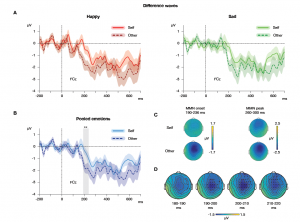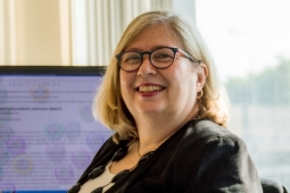At the occasion of the PhD defense of Laura Rachman on Dec. 7th, the CREAM lab is happy to organize a mini-symposium on recent voice affective science and neuroscience with two prominent researchers from the Netherlands, Prof. Disa Sauter (Department of Social Psychology, Universiteit van Amsterdam) and Prof. Sonja Kotz (Department of Neuropsychology & Psychopharmacology, Maastricht University). The two talks will be followed in the afternoon by the PhD viva of Laura Rachman, which is also public.
Date: Friday December 7th
Hours: 10h30-12h (symposium), 14h (PhD. viva)
Place: Salle Stravinsky, Institut de Recherche et Coordination en Acoustique/Musique (IRCAM), 1 Place Stravinsky 75004 Paris. [access]
Friday Dec. 7th, 10h30-12h
Symposium: Recent voice research from the Netherlands (Prof. Disa Sauter, Prof. Sonja Kotz)
10h30-11H15 – Prof. Disa Sauter (Universiteit van Amsterdam, NL)
Preparedness for emotions: Evidence for discrete negative and positive emotions from vocal signals
We all have emotions, but where do they come from? Functional accounts of emotion propose that emotions are adaptations which have evolved to help us deal with recurring challenges and opportunities. In this talk, I will present evidence of preparedness from studies of emotional vocalisations like laughs, screams, and sighs. This work suggests that a number of negative and positive emotional states are associated with discrete, innate, and universal vocal signals.
11h15-12h – Prof. Sonja Kotz (Maastricht University, NL)
Prediction in voice and speech
Prediction in voice and speech processing is determined by “when” an event is likely to occur (regularity), and “what” type of event can be expected at a given point in time (order). In line with these assumptions, I will present a cortico-subcortical model that involves the division of labor between the cerebellum and the basal ganglia in the predictive tracing of acoustic events. I will discuss recent human electrophysiological and fMRI data in line with this model.
Friday Dec. 7th, 14h-16h30
PhD Defense: The “other-voice” effect (Laura Rachman)
At 14h on the same day, Laura Rachman (PhD candidate, Sorbonne-Université) will defend her PhD thesis, conducted in the CREAM Lab/ Perception and Sound Design Team (STMS – IRCAM/CNRS/Sorbonne Université). The viva is public, and all are welcome.
 14h-16h30 – Ms. Laura Rachman (IRCAM, CNRS, Sorbonne Université)
14h-16h30 – Ms. Laura Rachman (IRCAM, CNRS, Sorbonne Université)
The “other-voice” effect: how speaker identity and language familiarity influence the way we process emotional speech
The human voice is a powerful tool to convey emotions. Humans hear voices on a daily basis and are able to rapidly extract relevant information to successfully interact with others. The theoretical aim of this dissertation is to investigate the role of familiarity on emotional voice processing. A set of behavioral and electrophysiological studies investigated how self- versus non self-produced voices influence the processing of emotional speech utterances. By contrasting self and other, familiarity is here assessed at a personal level. The results of a first set of studies show a dissociation of explicit and implicit processing of the self-voice. While explicit discrimination of an emotional self-voice and other-voice was somewhat impaired, implicit self-processing prompted a self-advantage in emotion recognition and speaker discrimination. The results of a second set of studies show a prioritization for the non-self voice in the processing of emotional and low-level acoustic changes, reflected in faster electrophysiological (EEG) and behavioral responses. In a third set of studies, the effect of voice familiarity on emotional voice perception is assessed at a larger sociocultural scale by comparing speech utterances in the native and a foreign language. Taken together, this disseration highlights some ways in which the ‘otherness’ of a voice – whether a non-self speaker or a foreign language speaker – is processed with a higher priority on the one hand, but with less acoustic precision on the other hand.
Download link: Thesis manuscript
Thesis Committee:
- Prof. Sonja Kotz – Reviewer – Department of Neuropsychology and Psychopharmacology, Maastricht University
- Prof. Pascal Belin – Reviewer – Institut de Neurosciences de la Timone, CNRS, Aix-Marseille Université
- Prof. Disa Sauter – Examiner – Department of Social Psychology, Universiteit van Amsterdam
- Dr. Marie Gomot – Examiner – Centre de Pédopsychiatrie, INSERM, Université de Tours
- Prof. Mohamed Chetouani – Examiner – Institut des Systèmes Intelligents et de Robotique, Sorbonne Université
- Dr. Stéphanie Dubal – Thesis Co-director – Institut du Cerveau et de la Moelle épinière, CNRS, Sorbonne Université
- Dr. Jean-Julien Aucouturier – Thesis Co-director – STMS – Ircam/CNRS/Sorbonne Université


